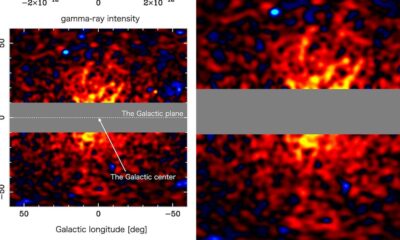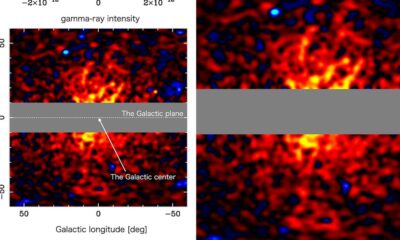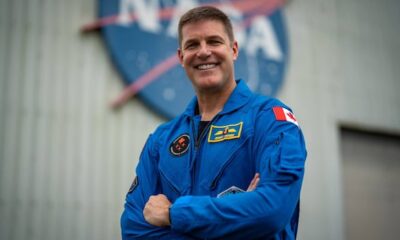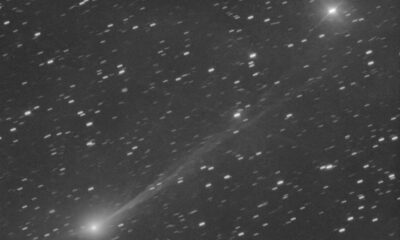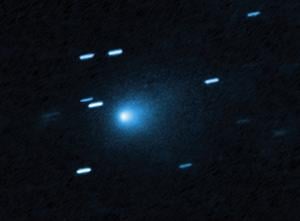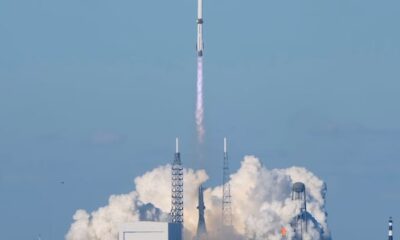Entertainment
Environmental Scientist Kristian Bandeira Embraces Digital Tools
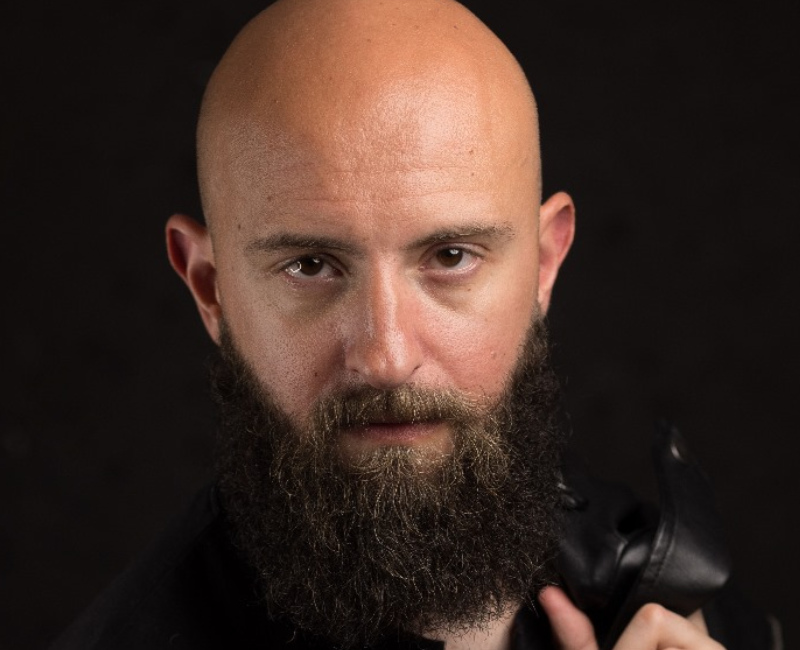
Environmental scientist Kristian Bandeira discussed the transformative impact of digital technology on his research and the field of science in general. He emphasized how advancements in tools and platforms are enabling scientists to make discoveries more rapidly and engage effectively with the public.
Bandeira drew inspiration from a quote by German philosopher Immanuel Kant, who stated, “Science is organized knowledge. Wisdom is organized life.” This sentiment resonates with Bandeira as he navigates the complexities of modern environmental science. He shared that his daily motivation stems from contributing to a larger purpose, saying, “What inspires me as a scientist each day is knowing that I’m contributing to something bigger than myself, even if it’s just in a small way.”
From a young age, Bandeira harbored a fascination with the sciences. Initially, he aspired to study Planetary Geology and Astronomy, with dreams of working for NASA. As his academic journey progressed, he shifted his focus to a broader Earth science program, allowing him to explore various aspects of environmental science more comprehensively.
Embracing Technology in Research
Bandeira highlighted the extraordinary nature of being an environmental scientist in today’s digital landscape. He noted that “rapid advancements in technology are allowing us to make discoveries faster and on a much larger scale than before.” Social media and streaming platforms have become invaluable tools for scientists, enabling them to share findings, engage with the public, and collaborate globally in real-time.
Despite the advantages, Bandeira pointed out the challenges posed by misinformation. “With the vast amount of information and technology available, there is also a growing challenge with the spread of misinformation and false claims,” he said. This reality underscores the importance of clear communication from scientists to help the public differentiate between credible information and misleading content.
In his daily research, Bandeira extensively uses Geographic Information Systems (GIS) software. He explained that tools like Google Earth and Google Maps have revolutionized the way scientists map, analyze, and study the Earth. “They allow me to visualize data, track changes over time, and better understand spatial relationships in the environment,” he stated.
Advice for Future Scientists
Looking ahead, Bandeira has plans to travel to Patagonia in Argentina later this year to conduct in-depth research on the region’s rapidly receding glaciers. This endeavor illustrates his commitment to understanding pressing environmental issues.
For young and emerging scientists, Bandeira offered encouraging advice. “They are growing up in a new digital era, where their research will play a crucial role in helping us better understand the world just a little bit more,” he said. He urged them to leverage the tools available to them and to push the boundaries of what is possible. “Remember, even a small contribution can end up making a big impact,” he concluded.
Bandeira’s insights reflect a broader trend within the scientific community, where the integration of technology is reshaping research methodologies and public engagement. As environmental challenges intensify, the role of scientists like him, equipped with digital tools and a commitment to clear communication, will be vital in addressing the issues facing our planet.
-

 Politics4 weeks ago
Politics4 weeks agoSecwepemc First Nation Seeks Aboriginal Title Over Kamloops Area
-

 World5 months ago
World5 months agoScientists Unearth Ancient Antarctic Ice to Unlock Climate Secrets
-

 Entertainment5 months ago
Entertainment5 months agoTrump and McCormick to Announce $70 Billion Energy Investments
-

 Science5 months ago
Science5 months agoFour Astronauts Return to Earth After International Space Station Mission
-

 Lifestyle5 months ago
Lifestyle5 months agoTransLink Launches Food Truck Program to Boost Revenue in Vancouver
-

 Technology3 months ago
Technology3 months agoApple Notes Enhances Functionality with Markdown Support in macOS 26
-

 Lifestyle3 months ago
Lifestyle3 months agoManitoba’s Burger Champion Shines Again Amid Dining Innovations
-

 Top Stories2 months ago
Top Stories2 months agoUrgent Update: Fatal Crash on Highway 99 Claims Life of Pitt Meadows Man
-

 Politics4 months ago
Politics4 months agoUkrainian Tennis Star Elina Svitolina Faces Death Threats Online
-

 Sports5 months ago
Sports5 months agoSearch Underway for Missing Hunter Amid Hokkaido Bear Emergency
-

 Politics5 months ago
Politics5 months agoCarney Engages First Nations Leaders at Development Law Summit
-

 Technology5 months ago
Technology5 months agoFrosthaven Launches Early Access on July 31, 2025

